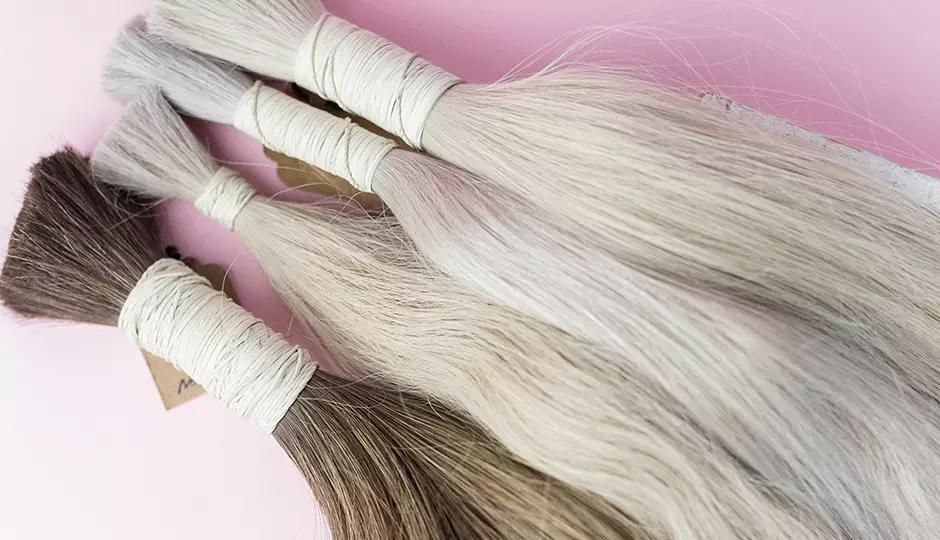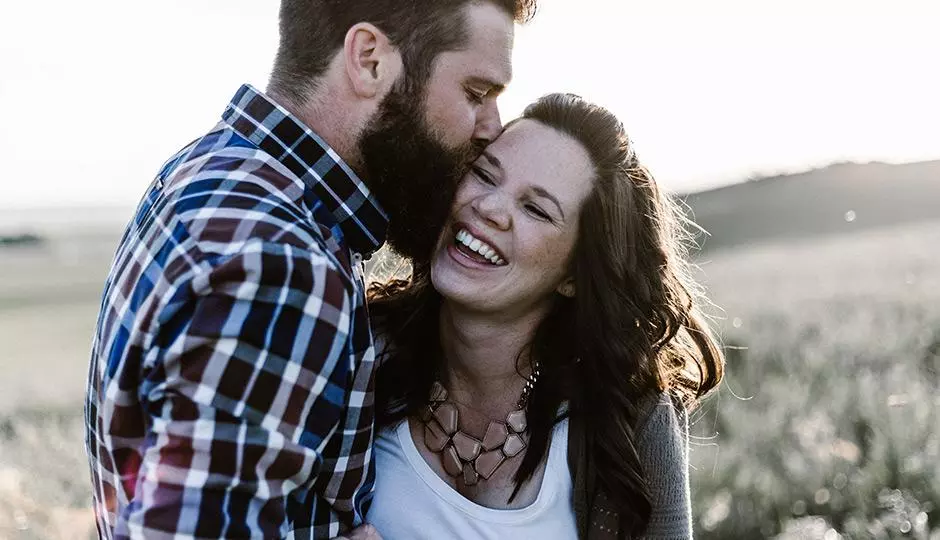Hair extensions are a great way to enhance your natural hair by adding length, volume, thickness, or even a bit of color. Whether you want to achieve long, flowing locks or experiment with a new style, hair extensions can be a game-changer.
However, you may have heard them blamed for causing headaches, damaging hair, and even causing thinning hair and hair loss. These stories can be disconcerting if you're new to hair extensions. So, let's take a closer look and answer the question, "Are hair extensions safe?"
What Are Hair Extensions?
Hair extensions can transform even the thinnest head of hair into a luxurious mane by adding volume and length. There is a wide range of options when it comes to hair extensions. Which option is best for you depends on several factors.
The first decision you'll have when choosing hair extensions is the hair type. Synthetic hair is a budget-friendly option commonly used for extensions and wigs. Quality can vary, but many hair extensions made with synthetic fibers are indistinguishable from natural hair. Human hair extensions cost more, but they have the look and feel of your natural hair and can be heat-styled, washed, and treated like your own hair.
The other significant difference in hair extensions is how they attach to your hair. The most common installation methods include:
- Clip-Ins: Perfect for occasional use. Clip them in when you want extra length or volume, and remove them quickly and easily.
- Sew-In/Weave: Hair is sewn onto braided tracks, which provides long-lasting results.
- Tape-Ins: Sandwiched between adhesive strips. Quick application and comfortable wear.
- Fusion or Bonded Hair Extensions: Fusion hair extensions are the most permanent hair extension solution, lasting six months or longer. The most common technique uses keratin-tipped strands fused close to the scalp with a heated iron.
Do Hair Extensions Damage Your Hair?
For years, people have repeated stories about hair extensions leaving hair damaged, broken, and thin. There may be some truth to this regarding more permanent types of hair extensions, which use heat or glue for installation. However, even fusion or bonded hair extensions will not damage hair when properly attached.
Hair extensions are one of the safest ways to add length, volume, and fullness to your hair because they are typically worn only when you want to enhance the length and thickness of your hair. While you can wear them daily, they are usually only worn for a few hours when needed and removed before showering or going to bed. When your hair extensions are installed, worn, removed, and cared for properly, they cause no damage to your hair.
What Can Cause Hair Damage?
The most significant issue people have with hair extensions isn't the extensions but the people installing them. Inexperienced stylists can damage your hair, and super heavy sets of extensions may tug at the scalp and cause headaches, scalp pain, or even hair loss. If the tug of a tight ponytail gives you a headache or causes pain, start slowly with extensions to avoid discomfort.
Damage from hair extensions can also occur during do-it-yourself installations, especially if they involve complicated attachment methods like hot or cold fusion. If you're not a professional with at least some experience with these methods, there is a good chance you'll damage the extensions or your natural hair.
Get Help From The Experts at LH Hair
At LH Hair, we proudly offer clients the highest quality hair extensions available. Our team of experts can perfectly match your natural hair's color and texture or provide a brand-new look and style. Hair extensions from LH Hair are the perfect solution for people experiencing partial hair loss or for adding the volume and length you desire. Our highly qualified team integrates your hair extensions with your natural hair in an incredibly natural, lifelike, and undetectable manner. To learn more about hair extensions from LH Hair, contact us today and schedule your free consultation.



